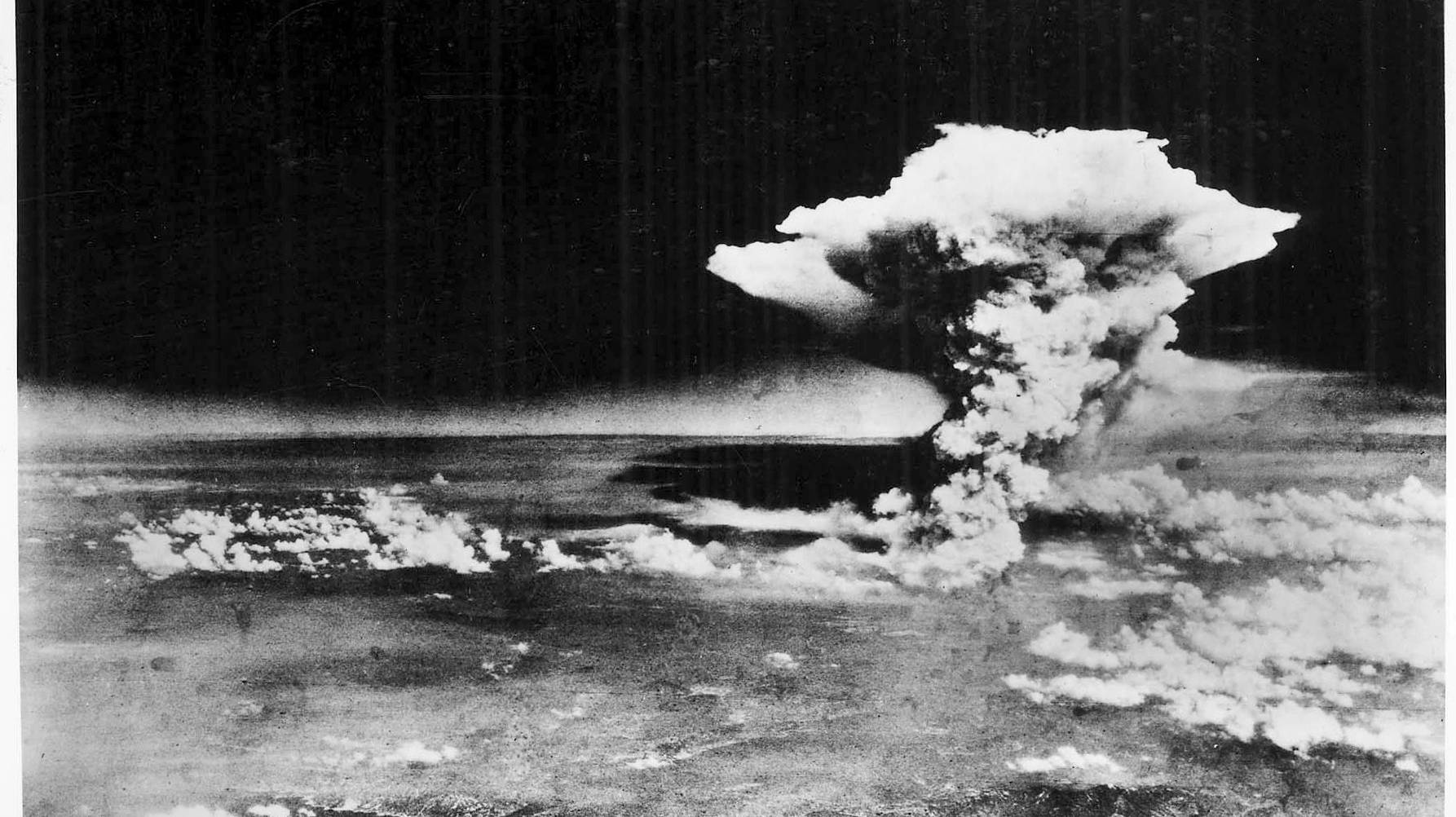The PCP stresses that, in recalling the attacks, it warns of “the dangerous situation created by the militaristic, arms-raising and confrontational policy led by the United States.”
On Tuesday, the PCP recalled the atomic bombings of Hiroshima and Nagasaki, called for a fight against the “propaganda campaign of militarism and war” and accused the United States of being responsible for the worsening of the international situation.
In a statement, the PCP recalls that on August 6 and 9, 1945, the United States dropped two atomic bombs on the Japanese cities of Hiroshima and Nagasaki, “which immediately caused around 200,000 deaths and left an indescribable trail of destruction and suffering.”
Hiroshima remembers its dead on the 79th anniversary of the first atomic bomb
“A monstrous crime against humanity that absolutely nothing can justify.but the United States of America (USA) sought to excuse this with the false argument of defeating Japan, when Japan was already militarily defeated,” the party states.
The PCP stresses that, in recalling the two attacks, it warns of “the dangerous situation created by the militaristic, arms-raising and confrontational policy led by the United States, including in the context of nuclear weapons, which is dragging NATO, the European Union and their G7 allies into it.”
“This is what can be seen in relation to Japan itself, which, in direct violation of the pacifist Constitution resulting from the defeat of Japanese militarism in World War II, is actively participating in the extension of NATO’s influence to the Asia-Pacific and in the increasingly frequent and dangerous military operations in this region directed against the People’s Republic of China,” he says.
For the PCP, “Remembering the nuclear holocaust of Hiroshima and Nagasaki is a duty of memoryBut above all, it is an opportunity to affirm the imperative duty to fight so that such a tragedy never happens again.”
“It is necessary to defend historical truth and to fight firmly and courageously against the overwhelming propaganda campaign of militarism and war, of fascism that normalises and even trivialises the use of nuclear weapons,” he argues.
The PCP adds that “it is necessary to persist in unmasking American imperialism which, under the pretext of the so-called defense of Western civilization, seeks to impose its totalitarian hegemony in the world and which, having been to date the only country to have resorted to the use of nuclear weapons, is responsible for the worsening of the international situation and the real danger of a war of incalculable proportions.”
The party maintains that “war is not inevitable” and says it is confident that “the development of the liberation struggle of workers and peoples will triumph, against militarism and war, for the political solution of conflicts, for peace.”
The PCP believes that “Portugal can and must make an important contribution to general, simultaneous and controlled disarmament – including the abolition of nuclear weapons – to the dissolution of political-military blocs and to the establishment of a system of collective security.”
“Fighting to break with decades of right-wing politics and for a patriotic left-wing alternative, the PCP will do everything possible to achieve this goal,” the party added.
On August 6, 1945, at 8:15 am, the US Air Force B-29 Enola Gay crashed the plane. Little boyname given by the United States to the first nuclear bomb dropped on an enemy target, in the Japanese city of Hiroshima.
The bomb had a power equivalent to 13 kilotons of TNT and exploded approximately 600 meters above sea level, causing the immediate death of around 80 thousand people.
The death toll rose to nearly 140,000 by the end of 1945, although the exact number of victims caused by the bombing and the subsequent effects of radiation is unknown.
On August 9, 1945, three days after the attack on Hiroshima, the United States dropped a second nuclear bomb on the city of Nagasaki, leading to Japan’s surrender six days later and ending World War II.
The two Japanese cities remain to this day the only targets of nuclear bombing against civilian targets in human history.
Source: Observadora
